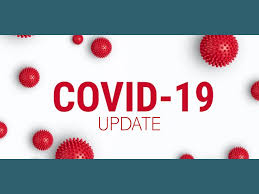So I’ve had Covid… should I get vaccinated? [] Kate Greenaway
News Category: News and COVID 19
-
Published February 27, 2021
How long will my immunity last? Ahhh…. the million dollar question! First of all, only very few people appear to have caught Covid-19 twice – it’s still considered a rare event – but as new variants reveal themselves, we realize we still have a lot to learn about how this virus operates. In general, people who have been infected with Covid-19 show a decline in antibodies within a few months, but their immunity may last significantly longer than that. A recent small study showed durable immune responses that lasted six to eight months! Findings of another recent (small) study suggest that people with severe Covid-19 cases may have stronger long-term immunity.
Do I need actually need to get vaccinated? People who have gotten sick with Covid-19 will probably still benefit from getting vaccinated. There is not enough information currently available to say if or for how long people are protected from getting Covid-19 after they’ve had it. Early evidence suggests natural immunity from illness may be shorter-lived that the response to some vaccines, especially mRNA vaccines, but more studies are needed to better understand this.
Right now, the bottom line is: Due to the severe health risks associated with Covid-19 illness and the fact that re-infection with Covid-19 is possible, it is recommended that people get a Covid-19 vaccine even if they have been sick with it before.
How long should I wait after my illness before receiving Covid-19 vaccine? There is no evidence of any safety concerns from vaccinating individuals with a past history of Covid-19 infection, or with detectable Covid-19 antibody. However, people with Covid-19 who have symptoms should not be vaccinated until they have recovered from their illness to avoid confusing the differential diagnosis. As clinical deterioration can occur up to two weeks after infection, ideally vaccination should be deferred until full clinical recovery, around 4 weeks after onset of symptoms (or 4 weeks from the first confirmed positive specimen in those who are asymptomatic).
If Covid-19 was treated with monoclonal antibodies or convalescent plasma, wait 90 days to get Covid vaccine.
No other vaccinations (flu shot, tetanus shot, etc.) should be taken within 14 days a Covid (before or after, unless they are urgently required for treatment (for example a tetanus shot after a wound, or a rabies shot after a bite).
NB: Those whose illness was severe and those who are severely immuno-compromised should get the advice of their doctor in making this decision.
Having prolonged Covid-19 symptoms (or “long Covid”) is not a contraindication to receiving Covid-19 vaccine but if the patient is seriously debilitated, still under active investigation, or has evidence of recent deterioration, deferral of vaccination may be considered to avoid incorrect attribution of any change in the person’s underlying condition to the vaccine.
Should I delay getting my vaccine to let other people go first? Where vaccine supply is limited, individuals may wish to defer their own Covid-19 vaccination for up to 6 months (from the time of infection). Please discuss this decision with your doctor and weigh up your risks vs. benefits.
Sources used:
- https://www.hopkinsmedicine.org/health/conditions-and-diseases/coronavirus/getting-the-covid-19-vaccine-what-to-expect
- https://immunology.sciencemag.org/content/6/55/eabe4782
- https://www.gov.uk/government/publications/covid-19-the-green-book-chapter-14a
- https://www.who.int/news-room/feature-stories/detail/who-can-take-the-pfizer-biontech-covid-19–vaccine
-


Leave a Reply